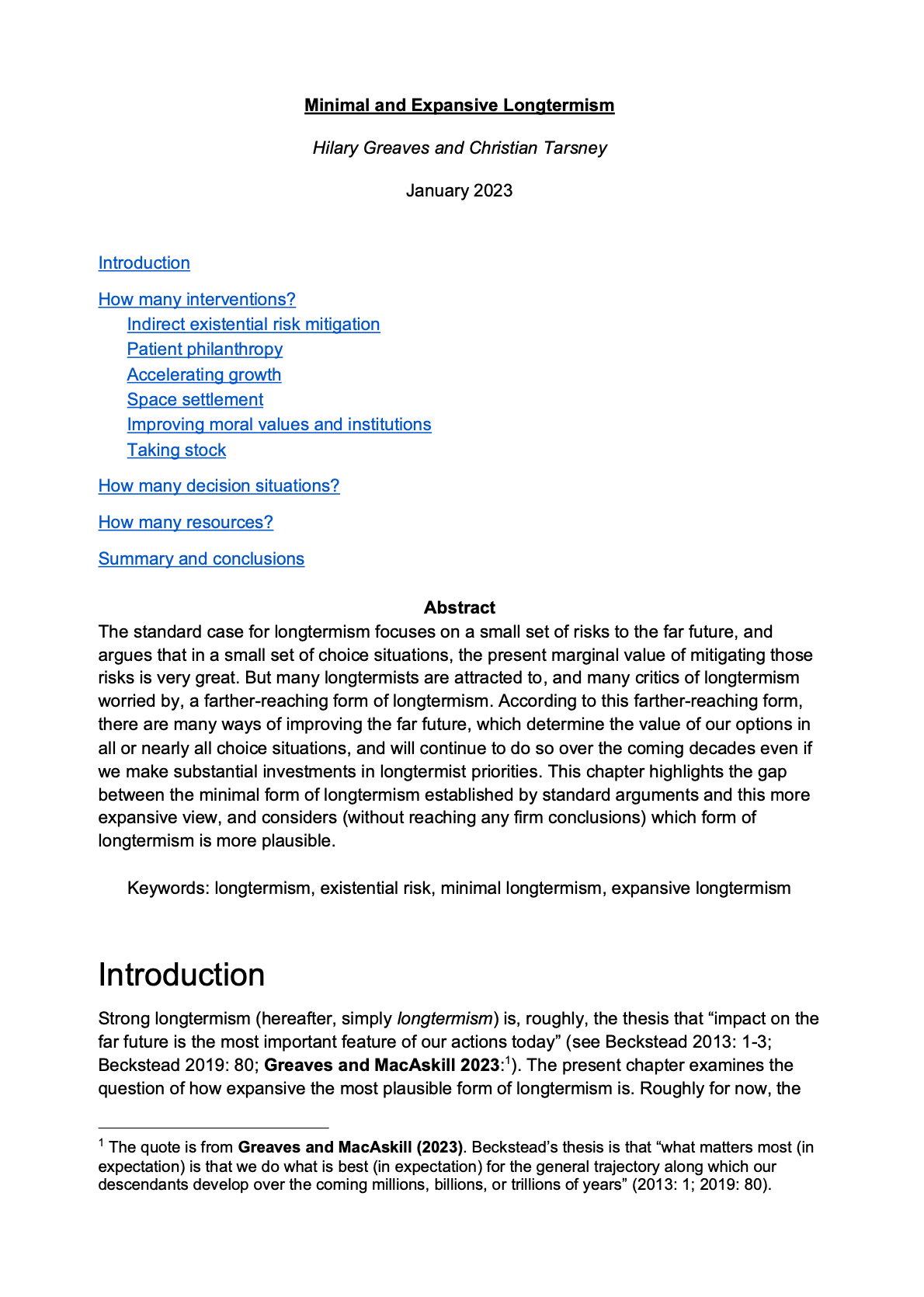Minimal and Expansive Longtermism
Hilary Greaves (University of Oxford) and Christian Tarsney (Population Wellbeing Initiative, University of Texas at Austin)
GPI Working Paper No. 3-2023, forthcoming in Essays on Longtermism
The standard case for longtermism focuses on a small set of risks to the far future, and argues that in a small set of choice situations, the present marginal value of mitigating those risks is very great. But many longtermists are attracted to, and many critics of longtermism worried by, a farther-reaching form of longtermism. According to this farther-reaching form, there are many ways of improving the far future, which determine the value of our options in all or nearly all choice situations, and will continue to do so over the coming decades even if we make substantial investments in longtermist priorities. This chapter highlights the gap between the minimal form of longtermism established by standard arguments and this more expansive view, and considers (without reaching any firm conclusions) which form of longtermism is more plausible.
Other working papers
The epistemic challenge to longtermism – Christian Tarsney (Global Priorities Institute, Oxford University)
Longtermists claim that what we ought to do is mainly determined by how our actions might affect the very long-run future. A natural objection to longtermism is that these effects may be nearly impossible to predict— perhaps so close to impossible that, despite the astronomical importance of the far future, the expected value of our present actions is mainly determined by near-term considerations. This paper aims to precisify and evaluate one version of this epistemic objection to longtermism…
When should an effective altruist donate? – William MacAskill (Global Priorities Institute, Oxford University)
Effective altruism is the use of evidence and careful reasoning to work out how to maximize positive impact on others with a given unit of resources, and the taking of action on that basis. It’s a philosophy and a social movement that is gaining considerable steam in the philanthropic world. For example,…
A Fission Problem for Person-Affecting Views – Elliott Thornley (Global Priorities Institute, University of Oxford)
On person-affecting views in population ethics, the moral import of a person’s welfare depends on that person’s temporal or modal status. These views typically imply that – all else equal – we’re never required to create extra people, or to act in ways that increase the probability of extra people coming into existence. In this paper, I use Parfit-style fission cases to construct a dilemma for person-affecting views: either they forfeit their seeming-advantages and face fission analogues…

